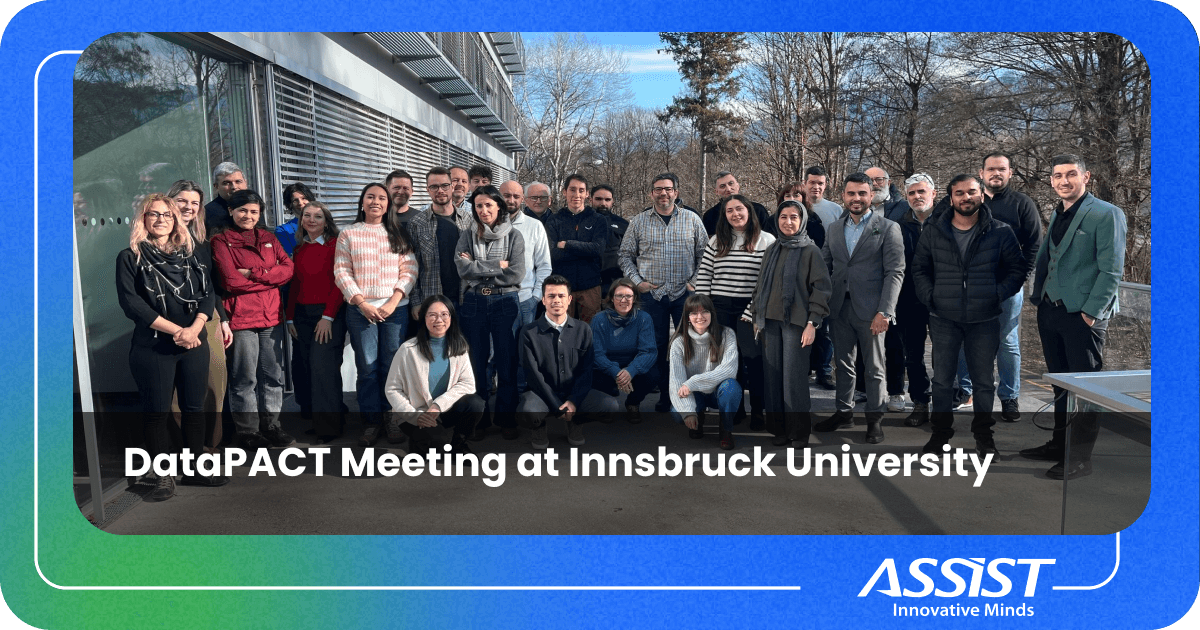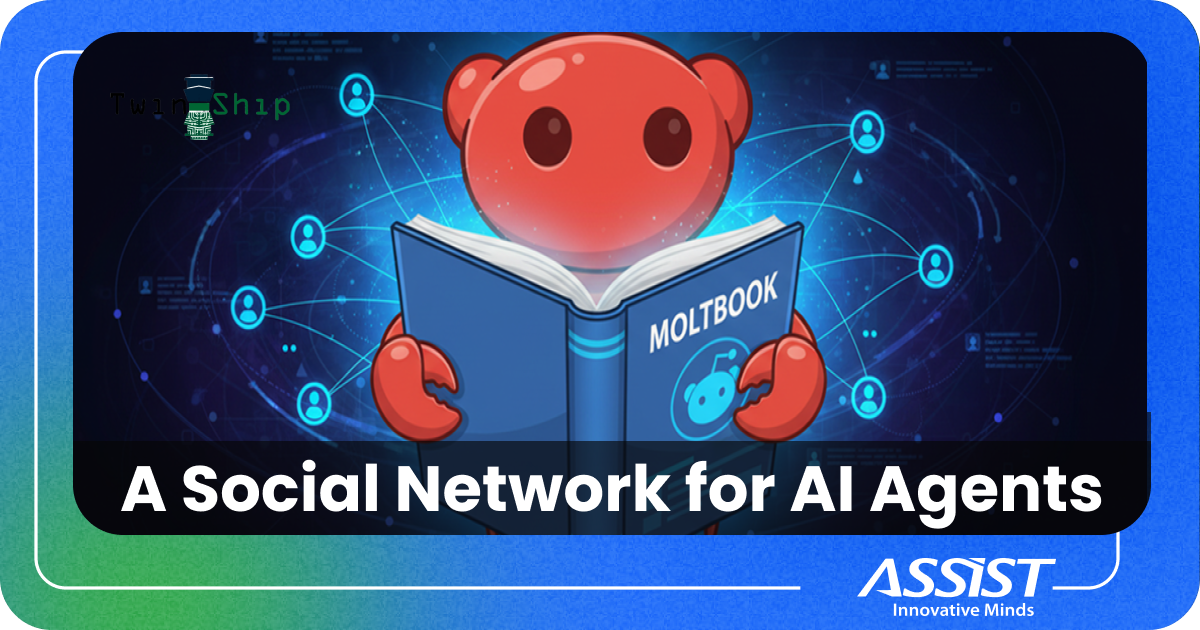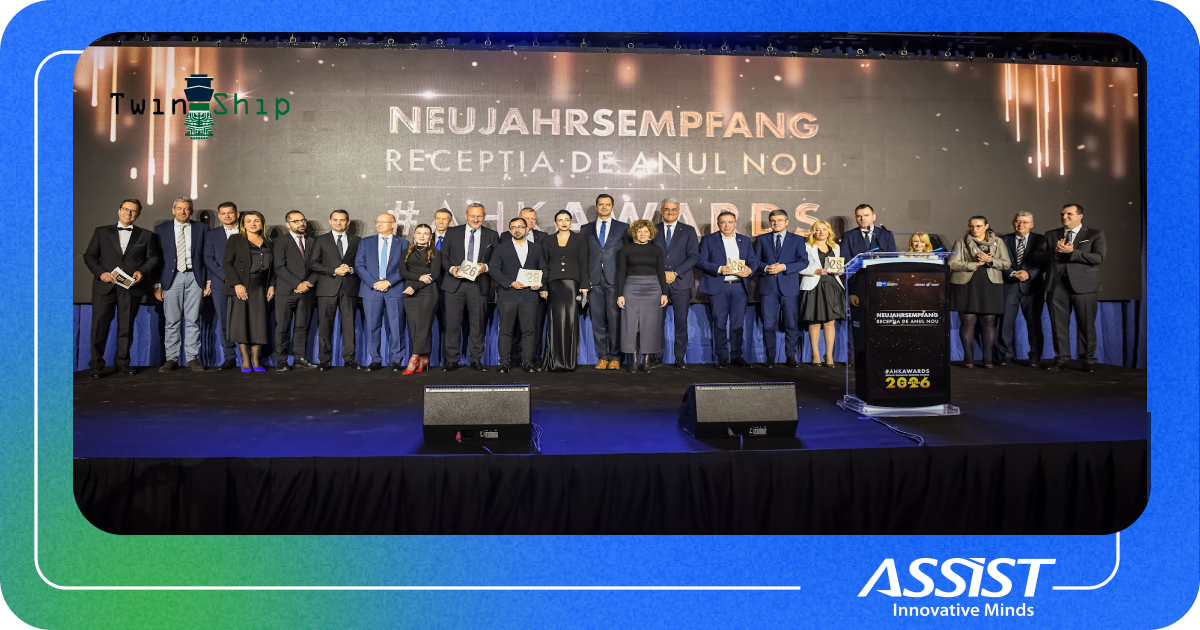Developing Tools For Ethical AI: The DataPACT Project

Today, we discuss about DataPACT. What is it? It's a Horizon Europe project that steps up to the big challenges in AI: building systems that align with today's demands for ethics, transparency, and sustainability. The goal is to aid in reshaping AI to be secure, fair, and environmentally conscious from the ground up. With ASSIST Software's tech expertise and a consortium of organizations that host specialists in their fields, DataPACT is actively creating tools that keep AI and data operations clean, efficient, and future-proof.
The Urgent Case for Responsible AI
AI's reach into healthcare, security, smart cities, and entertainment sectors has driven new issues forward. As AI gains influence, the need for unbiased, privacy-conscious, and environmentally responsible systems is more urgent than ever. Any slip here can mean significant backlash. DataPACT offers a model for approaching ethical AI development, using tools developers can quickly adopt and deploy.
We must ensure AI doesn't perpetuate harmful biases or amplify inequalities. In DataPACT's approach, every tool—from bias detection to sandbox testing—is crafted with fairness and transparency in mind. These instruments resonate with the principles ASSIST Software has covered on AI fairness and privacy-first development, helping industries design clear, compliant, and fair systems.
Read more:

How Do Institutions, Governments, and Companies Need To Come Together Regarding AI Ethics?
AI ethics sits at the intersection of responsibilities shared by institutions, governments, and companies, each playing a unique role in ensuring that AI systems benefit society. Institutions like universities and research centers focus on setting foundational ethical standards and developing transparent methodologies that guide AI research. They often work to identify potential risks and publish best practices, creating a knowledge base that businesses and governments can use.

Conversely, governments are responsible for translating these standards into enforceable regulations, ensuring that AI technologies are developed and used responsibly. Policies and legislation establish the rules companies must follow, covering data privacy, algorithmic transparency, and bias prevention. Regulatory bodies aim to protect citizens' rights while balancing the need for innovation, helping avoid scenarios where unchecked AI might reinforce discrimination, invade privacy, or operate without accountability.
For companies, AI ethics is about implementing these standards and regulations within their products and services, ensuring that they align with both ethical principles and legal requirements. By adhering to ethical AI practices, companies can protect their brand, increase customer trust, and reduce the risk of regulatory penalties. Together, institutions, governments, and companies create a shared framework that encourages responsible AI—an approach that supports societal trust and allows innovation to flourish in a way that respects human values and rights.
Let's look at the consortium that will tackle this project. d BV, Università degli Studi di Milano-Bicocca, ASSIST Software, Serviciul de Protectie si Paza Romania, Institut Jožef SINTEF, Trondheim Kommune, Mitla, Eticas Research and Consulting SL, International Data Spaces EV, Philips Medical Systems NederlanStefan, Aristotelio Panepistimio Thessalonikis, Cactus Digital S.A., Mog Technologies SA, University of Southampton, Sofia University St. Kliment Ohridski, Københavns Universitet, Universität Klagenfurt, and Katholieke Universiteit Leuven are putting in the efforts to ensure project completion and success.
ASSIST's Contribution: Bringing Theory into Practice

How are we taking DataPACT's complex idea and making it a reality? For example, we're building cloud-agnostic sandbox environments where developers can safely test new AI models. This sandbox system acts like a test drive for algorithms—ensuring compliance and security without risking user data. It's a critical component of DataPACT's vision, translating big ethical concepts into something that actually works.
Embedded within the AI pipeline, this tool should spot and adjust biases early, making it easier for companies to build fair systems from day one. This real-world functionality is a strong draw for clients in healthcare and finance, where compliance should be manageable without slowing innovation.
Industry-wide Impact Across Sectors
DataPACT will offer tools that address real-world needs from customer service to manufacturing. Law enforcement, for instance, will benefit from its framework for secure, privacy-first AI, while CRM systems can use their tools to ensure data handling is compliant and user-friendly.

The project is set to transform industries across Europe. It can streamline compliance in manufacturing, allowing companies to deploy AI more confidently without fear of bias or excessive carbon footprints. DataPACT's solutions promise responsible, privacy-first data handling, even in law enforcement. This project will add value to individual sectors; it sets a new standard across Europe, encouraging AI and data solutions that are not only innovative but fundamentally ethical and reliable.
DataPACT is funded by the Horizon Europe program of the European Union and submitted under the HORIZON-CL4-2024-DATA-01-01 call for proposals, with project ID 101189771.



